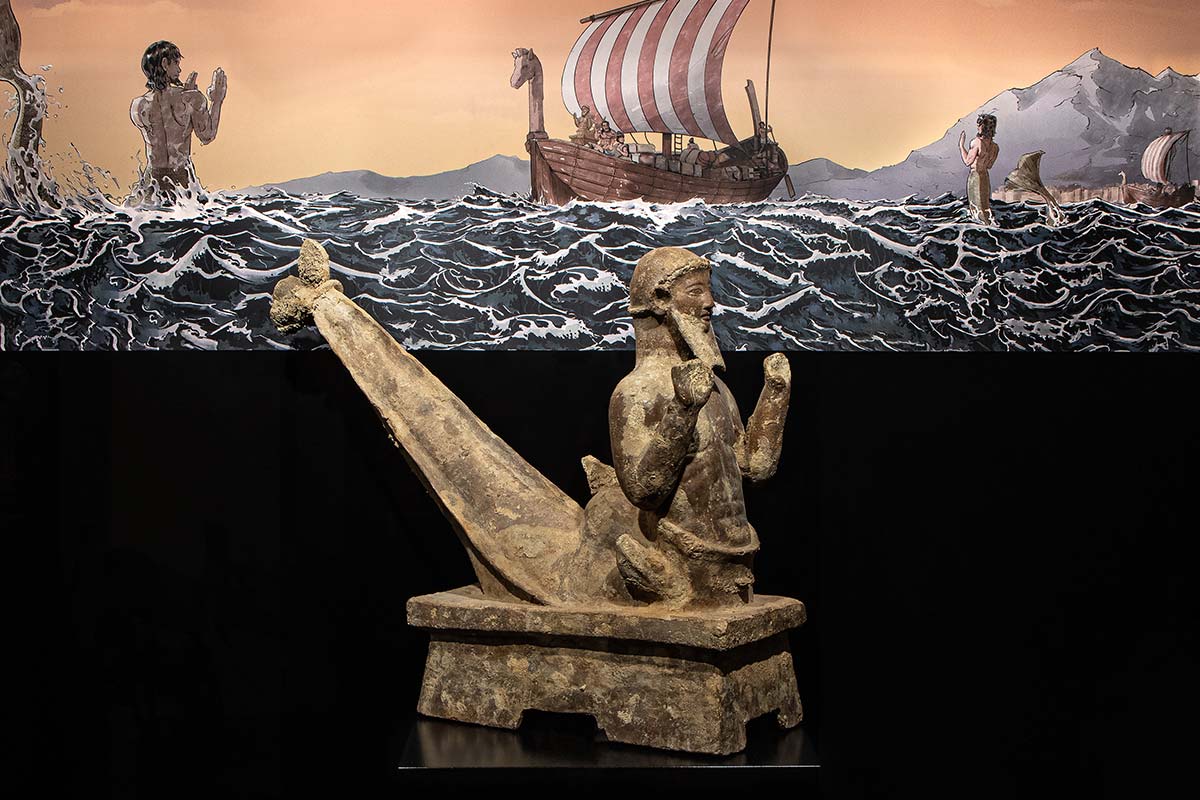Did you know that present-day Malaga has its origins in the Middle East? The origin of its name possibly comes from the dedication of the Phoenicians to their supreme God, Melqart (מלקרת), whose meaning was “King among the Cities”, as coins minted to this divinity have been found in different sites in the area. Also, it is known that the founders of the original location came from Tyre, another city dedicated to this divinity.
There is also the possibility that it derived from the root Malkah (מַלְכָּה) , which means “Queen” because of its link to the goddess Astarte, consecrated in other Phoenician sites on the Costa del Sol. In any case, no one doubts that MLK or Malaga is a city with a rich and diverse history dating back thousands of years.

Among the most fascinating chapters of this ancient history are its Phoenician origins. Originating in the region now comprising Lebanon and the Syrian-Palestinian coast, they were a remarkably influential civilization in the ancient Mediterranean, known for their seafaring skills, trade and ability to establish colonies throughout the Mediterranean basin. The Greeks adapted the Phoenician letters to their language, which was later imitated by the Romans, leaving us with our current Latin alphabet.
Historians deduce that the foundation of Malaga by the Phoenicians dates back to approximately the 8th century B.C. The Phoenicians were not only skilled sailors and traders, but also experts in the preservation of food through the use of salt, of which there has also been talk of a possible toponymic origin, since in their language Melakh (מֶלַח) meant salt, as well as in the current Hebrew. Of what there is no doubt, is that its location made it a crucial center for the trade of salted fish, which were highly demanded throughout the Mediterranean, a fact that would continue with the Romans and later civilizations.
From here, the Phoenicians also traded products such as metals, textiles, ceramics and foodstuffs, connecting the region with other points of the Mare Nostrum. In addition, the Phoenicians brought with them advanced navigation and shipbuilding techniques, which laid the foundations for the maritime development of the city and that today serve as a reference in the historical recreations that take place in the Nereo Shipyards, located in Pedregalejo and that are possible to visit with Embajadores de Málaga.

Despite the passage of time and other civilizations, such as the Romans and Muslims, each leaving their own mark on the city, the Phoenician heritage and legacy lives on among us. Proof of this is the Ifergan Collection, unique in the world and that in the historic center of Malaga, houses one of the largest collections of Phoenician history and the ancient world existing today.
On the other hand, there are several archaeological remains that can be seen both in Malaga city and province. In the Museum of Malaga or the Alcazaba it is possible to appreciate very precious testimonies coming from this primitive origin. Reflecting a time when Malaga emerged as a vibrant center of commerce and culture under the aegis of the Phoenicians, marking the beginning of its long and rich history.
What do you think of this story? Did you know the Phoenician origin of Malaga? Leave us your comments here.

One Response
Your writing is a beautiful reminder that the simplest ideas can often carry the most profound truths.